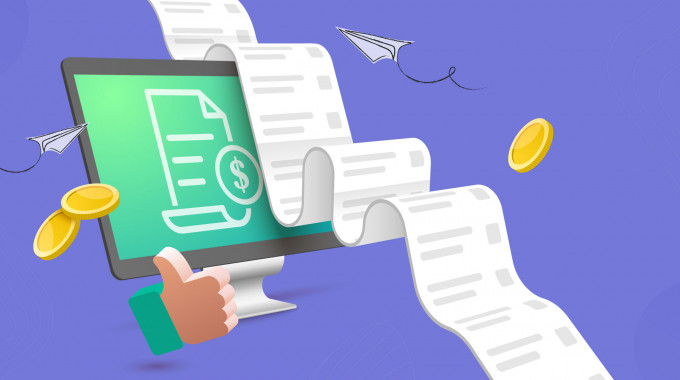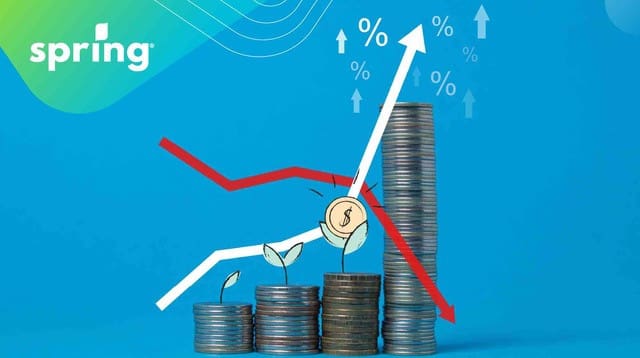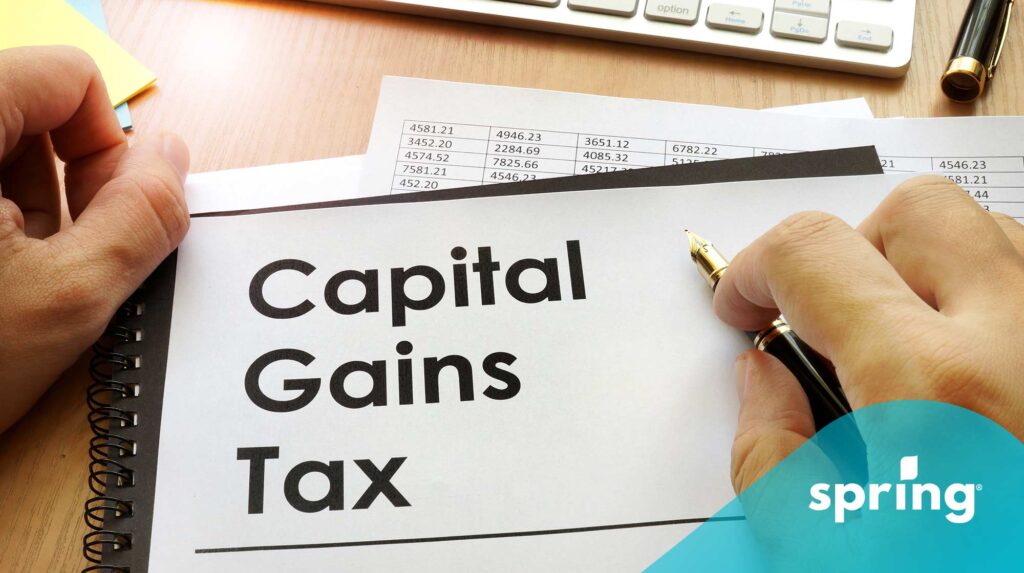In Canada, credit scores range from 300 to 900. A good credit score starts from 670, with anything over 800 considered excellent. Poor credit scores generally fall between 300 to 579.
Your credit score is important because it has a huge impact on your finances. If you have a good credit score, you’re seen as trustworthy in the eyes of financial institutions and will find it easier to get approved for loans with lower interest rates. If you have a bad credit score or no credit score at all, you may struggle to get approved for a credit card, loan, or mortgage. If you do get approved for financing with a less-than-perfect credit score, you typically pay a higher interest rate.
What is the Biggest Factor Impacting My Credit Score?
According to the credit bureau Equifax, your credit score is calculated using a combination of different factors but payment history accounts for 35% of the calculation, making it the most influential factor that determines your credit score.
This means that the most important thing you can do to build credit is to make sure you never miss a payment due date. It also means that missed (or late) payments
are the most damaging thing for your credit.
What Exactly is Credit?
There are three main types of credit recorded on your credit report:
Revolving credit: Credit cards and lines of credit are examples of revolving credit. You can borrow money up to your credit limit and then repay it in full or opt for minimum payments with interest to pay it back over time. Payment amounts fluctuate depending on how much money you borrow. Once the amount owing is paid, you’re free to borrow it again.
Instalment credit: Examples of instalment credit include mortgages, auto loans and personal loans. Instalment credit is a loan that’s paid back with regular payments (plus interest) over a set period of time. Payment amounts typically stay the same.
Open accounts: Open accounts like contract-based smartphone plans are when you sign up for a service and then pay the balance at the end of the payment period.
Who Keeps Track of My Payment History?
When you open one of the credit products mentioned above, a tradeline gets set up and every repayment you make gets reported to the two major credit bureaus Equifax and TransUnion. Credit bureaus, also known as credit reporting agencies, maintain credit reports for every borrower in Canada based on credit information it receives from financial institutions and other organizations.
Your credit report can be accessed by you or any entity (lender, landlord, employer) that wants to determine your creditworthiness. These entities will all need to get your consent to run a credit check.
Credit bureaus collect a lot of data related to payment history and use the information filed in your credit report to calculate your credit score.
Payment history information includes:
- Payment activity: Whether you made payments on time across all your credit products.
- Public records and collections: Whether you’ve declared bankruptcy, filed a consumer proposal, or have accounts in collections.
- Details on late or missed payments: How many days late your payment was, how much was owed, and how often you miss payments.
- Ratio of good and bad accounts: Credit bureaus also compare the credit accounts you pay on time with the ones you’re behind on. For example, if you miss payments on four accounts and have two in good standing, that ratio may negatively impact your credit score.
What Happens if I Miss a Payment?
If your payment is more than 30 days past due, a late payment will appear on your credit report. The longer you go without payment, the worse it is for your credit score. Things start to get serious when you miss multiple payments in a row. Credit card companies can freeze your credit card and sell your debt to a collection agency and lenders can start the foreclosure process if you’re behind on your mortgage payments.
How Long Does Negative Payment History Stay on my Credit Report?
Negative payment history like missed payments, accounts sent to collections, and bankruptcies can stay on your credit report for up to six years. The good news is it’s never too late to start improving your payment history. Doing so will lead to a stronger credit score and show lenders you’ve learned from previous mistakes.
How Do I Improve My Payment History?
Credit scores are calculated based on many factors, not just payment history. However, you won’t see much improvement to your credit if you keep missing payment dates. Whether you’re on a tight budget or have trouble keeping track of due dates, here are some helpful tips to ensure you never miss a payment.
- Write it down: Our memories aren’t as good as we think they are. Prevent forgetfulness by putting payment dates on your calendar, planner, or as a note on your phone.
- Automate payments: Skip the hassle of making manual payments by setting up direct debits.
- Contact your creditors: If you think you might miss a payment, call your lender in advance to see what they can do. Most lenders will do their best to accommodate your situation.
- Open a separate bank account: Set aside a portion of your pay cheque and transfer it to a separate account just for bills and other expenses.
- Use a budgeting app: Track savings and monitor your spending with apps like Mint, Wally, and YNAB.
- Seek professional help: Credit counselling services can help you budget your money, consolidate your debts, and more.
- Boost your income: From starting a side hustle to taking advantage of government tax credits and benefits, there are lots of ways to supplement your income to have money set aside for bill payments.
How to Build Payment History with Bad Credit?
Building credit when you have a low (or no) credit score is a conundrum. You need a credit product in order to prove that you can make payments on time. If you have poor credit or no credit, it can be difficult getting approved for a credit or loan, but it’s not impossible.
Lenders love to see a good mix of revolving and instalment credit on your report. Here are a couple of options to help you get started building a positive payment history:
Revolving credit: Secured credit card
A secured credit card works like a normal credit card, except you put a security deposit down before you can use it. Since the card is backed by collateral, you have a much higher chance of getting approved for this card. Unfortunately, not everyone can afford the initial deposit required to attain a secured credit card. Also, your credit score may take a hit if your credit utilization is too high, which can defeat the purpose of acquiring a secured credit card in the first place. Monthly credit card bills can also vary depending on your spending, which can make payments more difficult to plan for.
Instalment credit: Credit-building instalment program
Credit builder programs are highly effective tools for building credit. Kind of like an instalment loan, you follow a fixed payment schedule and make regular payments which are reported to credit bureaus. With credit-building programs, all payments are affordable and scheduled over a set period of time, making them more accessible and straightforward compared to revolving credit payments.
Combining instalment and revolving credit is a great way to boost payment history. However, remember to be selective of which credit products you apply for. Every time you apply for credit, a hard credit check is conducted. Too many hard credit checks can harm your credit score.
Start Building Credit with Spring Financial
Whether you’re new to credit or have poor credit, The Foundation by Spring Financial is a great place to start your credit-building journey. The Foundation is our signature credit-building program, with each payment reported to TransUnion and Equifax. These reported timely payments are what help make financial progress possible for so many Canadians.
Why choose The Foundation:
- 100% approval rate: You can start building credit with The Foundation regardless of your credit situation.
- Build credit & save money: After 12 months of timely payments, you’ll have an improved credit rating and a nest egg worth hundreds of dollars (that you can access at any time.)
- Access fair financial products: Get automatically approved for our Evergreen Loan—a $1,500 cash loan (18.99% interest) after 12 months on The Foundation and $750 saved.
- Flexible payment schedules: Low bi-weekly payments can be increased to speed up your savings or decreased if your budget is tight. You can also extend your term by six months or cancel (free of charge) at any time.
- No hidden fees: At Spring, there’s no such thing as application fees, setup fees, or maintenance fees.








